-
Page Navigation Links:
- Skip to Site Navigation Links
- Skip to Features

- The University of Iowa
- Spectator
- Monthly News for UI Alumni and Friends

Theatre instruction didn’t exactly take center stage at the State University of Iowa in the early 1900s. The index to the 1915 general course catalog did not include the word theatre, and the only class that came close to the topic was Dramatic Reading and Action, a two-credit course covering the “principles of stage expression.” No degrees in drama were offered, and no stage—center or otherwise—was available specifically for student performances.
Enter Edward Charles Mabie, stage left. In the summer of 1920, 27-year-old E.C. Mabie (as he would be known) arrived in Iowa City to begin duties as a lecturer in public speaking. The young Dartmouth-trained Wisconsin native had completed teaching stints at Dartmouth College, Illinois Wesleyan College, and the University of Kentucky before joining the SUI faculty.
What had been a moribund program with few course offerings grew to become the Department of Speech and Dramatic Art by 1928, offering advanced degrees at the master’s and doctorate level. Mabie’s department was among those on campus that flourished following the University’s groundbreaking decision in 1922 to accept creative work in lieu of the traditional written thesis as a requirement for graduate degrees. During Mabie’s tenure as head of the program, from 1928 until his death in 1956, about 350 master’s degrees and 32 doctorates in drama were awarded.
Mabie was instrumental in the community theatre movement and was a pioneer in the development of regional drama. He helped plan the formation of the Federal Theatre Project, a New Deal program established in 1935. He also was the founding president of the American Educational Theatre Association and held other leadership positions.
During the 1930s, Mabie secured funding to develop the University’s fine arts campus, including a grant from the Rockefeller Foundation to construct a theatre building, completed in 1936. It was said that his charismatic and aggressive style was, at times, a source of friction between him and Philip Greeley Clapp, director of the University’s music program during much of the same period and—like Mabie—a formidable figure. (See Old Gold, July 2010.) Clapp and Mabie often competed for the University administration’s attention, both for budget considerations and for recognition of their respective programs’ growing academic reputations.
Mabie’s impact on U.S. theatre and film was far-reaching. His noted students included Tennessee Williams, Richard Maibaum, E.P. Conkle, and Gene Wilder. In 1973, 17 years after his death, the 500-seat theatre in the building he developed was dedicated in his memory.
—David McCartney, University Archivist
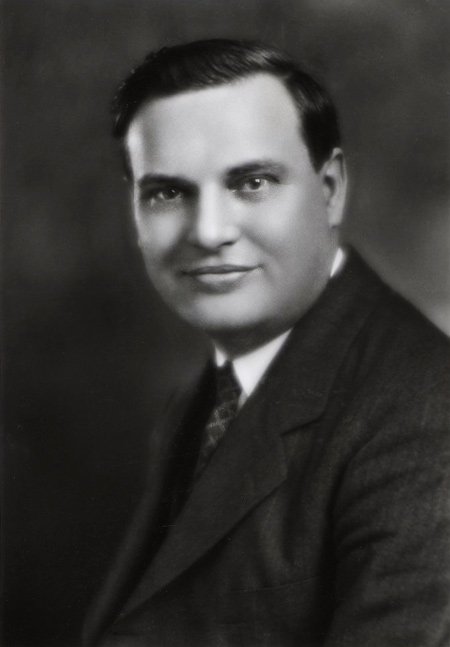 E.C. Mabie, about 1930 [F.W. Kent Photographs Collection, Faculty series, RG 30.01.01, University Archives, Department of Special Collections, University of Iowa Libraries].
E.C. Mabie, about 1930 [F.W. Kent Photographs Collection, Faculty series, RG 30.01.01, University Archives, Department of Special Collections, University of Iowa Libraries].
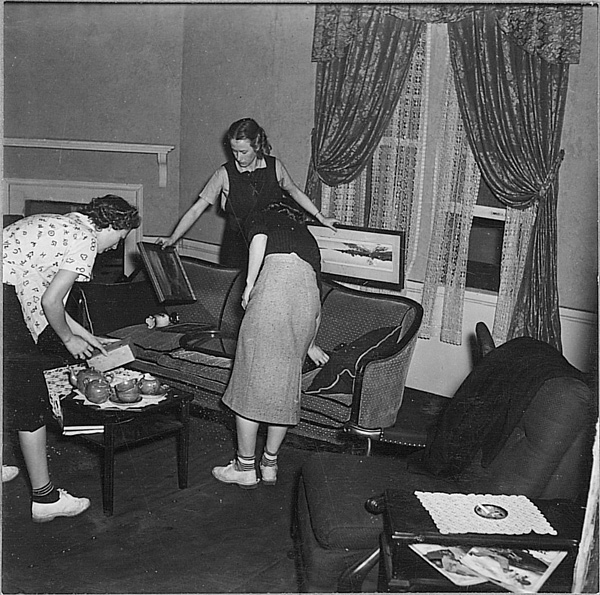 Drama students arranging furniture and props on a set, 1930s [F.W. Kent Photographs Collection, Colleges and Departments series: Speech and Dramatic Arts, RG 30.01.01, University Archives, Department of Special Collections, University of Iowa Libraries].
Drama students arranging furniture and props on a set, 1930s [F.W. Kent Photographs Collection, Colleges and Departments series: Speech and Dramatic Arts, RG 30.01.01, University Archives, Department of Special Collections, University of Iowa Libraries].
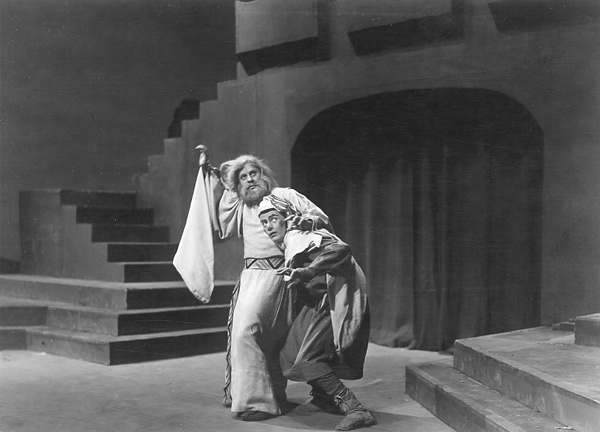 Lear and the Fool in Shakespeare’s King Lear, 1950 [F.W. Kent Photographs Collection, Colleges and Departments series: Speech and Dramatic Arts, RG 30.01.01, University Archives, Department of Special Collections, University of Iowa Libraries].
Lear and the Fool in Shakespeare’s King Lear, 1950 [F.W. Kent Photographs Collection, Colleges and Departments series: Speech and Dramatic Arts, RG 30.01.01, University Archives, Department of Special Collections, University of Iowa Libraries].
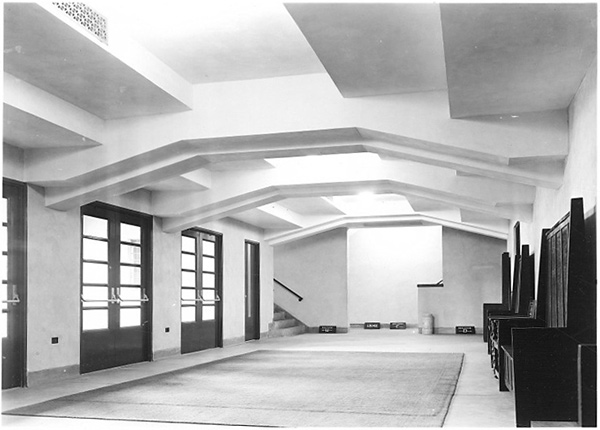 Foyer to a section of the Theatre Building, 1940s? [F.W. Kent Photographs Collection, Colleges and Departments series: Speech and Dramatic Arts, RG 30.01.01, University Archives, Department of Special Collections, University of Iowa Libraries].
Foyer to a section of the Theatre Building, 1940s? [F.W. Kent Photographs Collection, Colleges and Departments series: Speech and Dramatic Arts, RG 30.01.01, University Archives, Department of Special Collections, University of Iowa Libraries].
NEXT MONTH:
Freshman Week:
Taking exams and more!
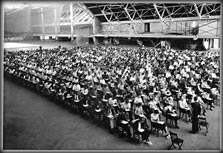
Source—F.W. Kent Photographs Collection, RG 30.01.01, University Archives, Department of Special Collections, University of Iowa Libraries
If you’ve got memories to share, please send them to Spectator and we’ll run some next month.
Previous Old Gold editions:
© The University of Iowa 2009